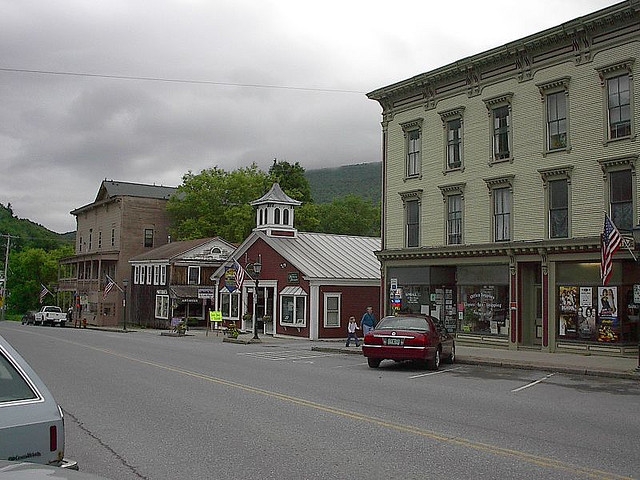
Bristol is headed to court over a problem facing many other towns: whether to permit a gravel pit that supporters say could create much-needed jobs.
Many other towns in Vermont and across the country have had similar debates about how to make the transition from an industrial economy to one that depends more heavily on services.
In Bristol, which lies along the western flank of the Green Mountains and the banks of the New Haven River, that debate has played out over the generous supply of gravel.
In 2003, a Bristol Zoning Board of Adjustment issued local landowner Jim Lathrop a permit to set up a gravel pit. That plan currently calls for mining 100,000-cubic-yards per year over the next 35 to 40 years. But several Bristol residents have relaunched their opposition to that long-delayed plan.
For the past eight years, Bristol resident and real estate owner John Moyers has led the effort to stop construction, saying that land should be used, instead, as a residential development.
"Bristol is a beautiful place with an amazing river. This is just not in keeping with that. It’s just not a long-term sustainable project," Moyers said, looking over the proposed site of the project. "We don’t want our landscape pot-marked with pits."
Moyers, a founding member of the grassroots group Smart Growth for Bristol, says the town is an epitome of sustainable development. He says Bristol has a small main street with a tight-knit village that was once protected under strict zoning laws. And he says the proposed pit would take the town in the wrong direction.
But Jim Lathrop disagrees. He estimates the extraction would create 30 to 50 jobs at a time when many Bristol residents are struggling to pay the bills, although opponents dispute how many jobs the gravel pit would generate.
"My opponents are using nothing but stall tactics. They’ve tried to throw the book at me to wear me down," says Lathrop, a fifth-generation Bristol native. "How are you going to create 3-million yards of gravel and not create jobs?"
Lathrop insists that he should be able to extract gravel in every district in Bristol – with conditions. "Graveling has been ruled that it’s not heavy industry," Lathrop says. "It’s in a category all by itself called aggregate sorting."
Last July, Smart Growth for Bristol won an appeal before the Natural Resources Board. Lathrop is now appealing that decision, which will go before the Vermont Environmental Court in Berlin later this month.
This story has been updated to reflect the following correction:
An earlier version of this story omitted last July’s decision by the Natural Resources Board, which Lathrop is now appealing before the state’s Environmental Court.